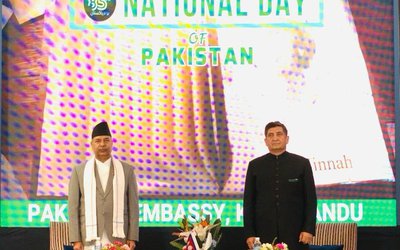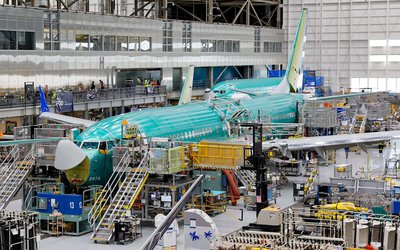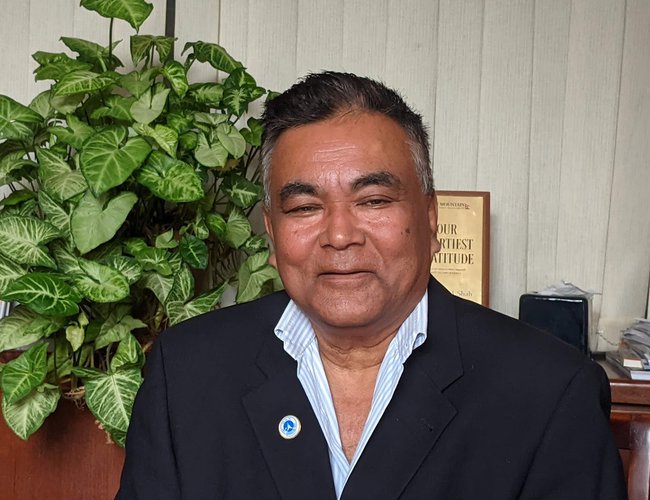
How do you see the tourism sector now?
There has been a positive response from international travelers, particularly those from China and India, as well as an increase in domestic travel. However, there are lingering challenges that need to be addressed. For nearly three years, tourism-related transactions were minimal, leading to the closure of many hotels, both small and large. This has resulted in a backlog of unpaid wages, bank interest, and employer payment issues, which are now being actively discussed within the hotel industry.
As the COVID-19 comes to an end, how hopeful are you on the quick revival of the tourism sector?
I am very hopeful for the quick revival of the tourism sector. Despite the challenges posed by the pandemic. There are ha been a positive response from international travelers, particularly those from China and India, as well as increases in domestic travelers.
How do you see the investment?
Investment in the hotel sector has been affected but there are several ongoing construction projects for five-star hotels, both in Kathmandu and in other regions of Nepal. These hotels are expected to be operational within a year, significantly increasing the luxury inventory of the hotel industry. With the capacity to accommodate 3.5 million visitors annually and the number of visitors to Lumbini, a popular tourist destination, is expected to reach 600,000 in 2022, I believe that tourism sector will revive quickly.
How do you interpret the Lumbini numbers?
The construction of numerous five-star hotels has already been finished. both inside and outside of Kathmandu. All of these hotels will open within a year, increasing the hotel industry's luxury inventory. There will be 600,000 visitors in 2022. However, the hotel sector in Nepal has the capacity to host 3.5 million visitors a year. As you are aware, the supply side is currently only around one-fourth of the total supply side.
What issues is the most pressing issue?
Nepal is located between India and China, making it an attractive destination for travelers, but the lack of international flights and well-connected roads is a major obstacles. The connectivity remains a major issue with two new international airports like Pokhara International Airport in Pokhara and Gautam Buddha International Airport in Bhairwa lagging behind. Kathmandu International Airport is already overcrowded and cannot hold more flights.
How would you rate Nepal's current hotel business sector overall as the recently elected president of HAN?
As the recently elected president of HAN (Hotel Association of Nepal), I would rate Nepal's current hotel business sector as promising but facing significant challenges. Following the impact of COVID-19, there has been a gradual recovery in the sector, with international travelers, particularly from China and India, showing a positive response. Domestic travel has also become more popular. However, there are several pressing issues that need to be addressed.
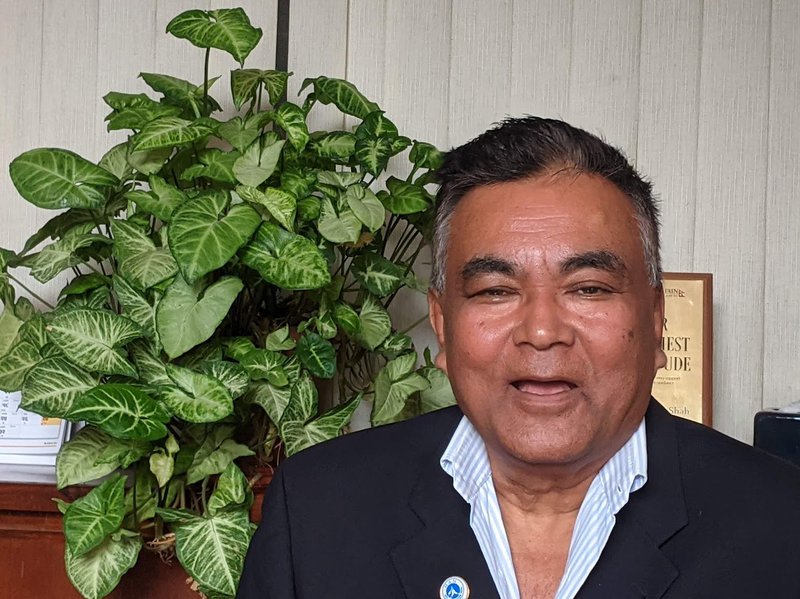
What are the major challenges?
One of the major challenges is the backlog caused by the three-year hiatus in tourism-related transactions. Many hotels, both small and large, were closed during this period, leading to unpaid wages, bank interest, and problems with employer payments. These issues have created a significant burden for the hotel industry, and they are currently being discussed and addressed by industry stakeholders.
How do you see the supply and demand situation?
Although numerous five-star hotels have been completed both inside and outside Kathmandu, the current supply side is only around one-fourth of the total capacity. This poses a potential problem as Nepal has the capacity to host 3.5 million visitors annually, while the projected number of visitors for 2022 is only 600,000. This underutilization of capacity could result in an inability to meet the demand and provide the high-quality services expected by visitors.
How do you see the issues of connectivity?
Connectivity is another pressing issue that needs immediate attention. The construction of two new international airports in Pokhara and Bhairahawa has been delayed, and there have been no international flights to these destinations. Moreover, Kathmandu International Airport is already crowded and unable to handle additional burdens. Improved connectivity, especially with neighboring countries like China and India, is essential to attract more visitors. Well-connected roads would enable travelers from both neighboring countries to conveniently visit Nepal by bus or automobile.
In conclusion, while there are positive signs of recovery in Nepal's hotel business sector, there are several pressing issues that require immediate attention. Addressing the backlog, promoting investment, and improving connectivity will be vital for the industry's growth and to ensure that Nepal can provide the high-quality services expected by visitors.
Why is the private sector investing so much in star hotels when there is poor connectivity?
Additionally, we need to prioritize the improvement of connectivity to remote areas, as this will help to attract more tourists. Furthermore, I believe that it is essential to collaborate with various stakeholders to create an effective promotional campaign to increase the visibility of the hotel industry in Nepal.
How do you anticipate the upcoming problems in the hotel industry as HAN's president?
As the president of HAN (Hotel Association Nepal), I anticipate several upcoming problems in the hotel industry that need to be addressed. While there are more hotel rooms being built up to international standards, it is crucial to focus on boosting demand and conducting effective promotional efforts. To achieve this, we need to ensure the full operational capacity of the international airports at Bhairwa and Pokhara, which requires communication with China and India for initiating flights.
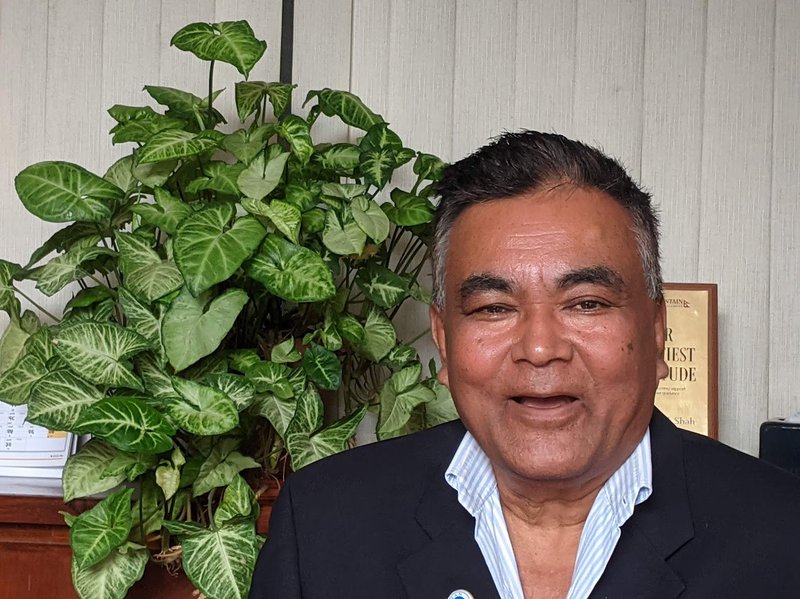
What do you think about alternative provisions?
Regarding alternative provisions, it was a wise decision to designate the decade 2023 to 2033 as Nepal's decade for developing its tourism industry. Aligning the announcement with an international marketing campaign can greatly benefit the tourism sector. Additionally, the government's initiatives of anticipating one million tourists this year and declaring 2025 as a special year for tourism are commendable. However, it is essential for the government to establish a monitoring system to ensure the effective execution and progress of these programs, involving both the government and the private sector.
What do you have to say in huge investment of private sector in Bhairwaa?
The large investments being made by the private sector in Bhairawa, demonstrate faith in the potential of Nepal's tourism industry. With numerous Indian and Chinese travelers, even a small percentage of tourists attracted to Nepal could lead to fully booked hotels and facilities. However, the limited operation of infrastructure, such as roads and airports, remains a challenge that requires government involvement and investment.
How many rooms are there in the hotel industry in Nepal?
These are currently 3.5 million rooms available in the hotel industry in Nepal indicating that here are around 10,000 beds available. Of these, approximately 5000 are located in Kathmandu. This indicates that there is currently enough space available.
How do you feel about the 2023 budget's increase of taxes for five-star luxury hotels?
Regarding the 2023 budget's increase of taxes for five-star luxury hotels, I believe that imposing further taxes on the hospitality sector at a time when hotels are just starting to recover from the impacts of the pandemic is not ideal. It could discourage potential investors and negatively affect the industry's growth. I hope the government reconsiders this provision and amends it accordingly.
What do you see for the next four years as President of HAN?
Whatever the intention, our association must follow the constitution and I must work in accordance with the charter. According to the charter, the association should succeed for its member organizations, and I must adhere to. Our sector needs to grow stronger and make a contribution to the national economy. These are the four principles that I must adhere to.
What do you need to do?
In order to achieve this, there are many things I need to accomplish as we emerge from the Covid-19 scenario. Numerous international groups have submitted suggestions, some of which mention networking. I will also lobby the government to change the law to include, as we have not yet received the same facilities and concessions that other industries have received, since we are classified as a service industry. For instance, the industry pays substantially less for power than other sectors do. The standard tariff is being paid. I am confident that I can make some audible effects for the industry in the future.
What do you think of the most recent court ruling eliminating service taxes?
It initially caused confusion, but things are now settling down. The larger hotels are trying to retain staff by offering certain benefits. Unfortunately, the small hotels are left without any help. To turn a profit, the hotel needs to be at least half full, yet the occupancy rate is currently under 20%.
What are the most pressing issues?
The main issue is the bank. We are denied government facilities and concessions offered to the bank because we are not recognized as an industry. Hotels are unable to cover their debts, including interest and banks are pressuring them to make a payment. We are having a very difficult time and we also ask the Nepal Rastra Bank to take it into account. Some hotels in Bhairawa and Pokhara have been unable to operate and they have gone to the district administration to hand over the keys.
Why did investors hurriedly invest in five-star hotels without researching the market or providing any justification? Who is to blame for this?
There were high expectations for drawing more tourists from Southeast Asia, India, and China after the opening of the new airport in Bhairawa. As a result, many hotel owners rushed to build new hotels which seemed achievable. However, it is the government's failure to operate the airport that is to blame. We have an ample Nepali workforce and the hotel industry should be considered one. Numerous things are unreasonable, the government has been informed by us, yet nothing has happened thus far.
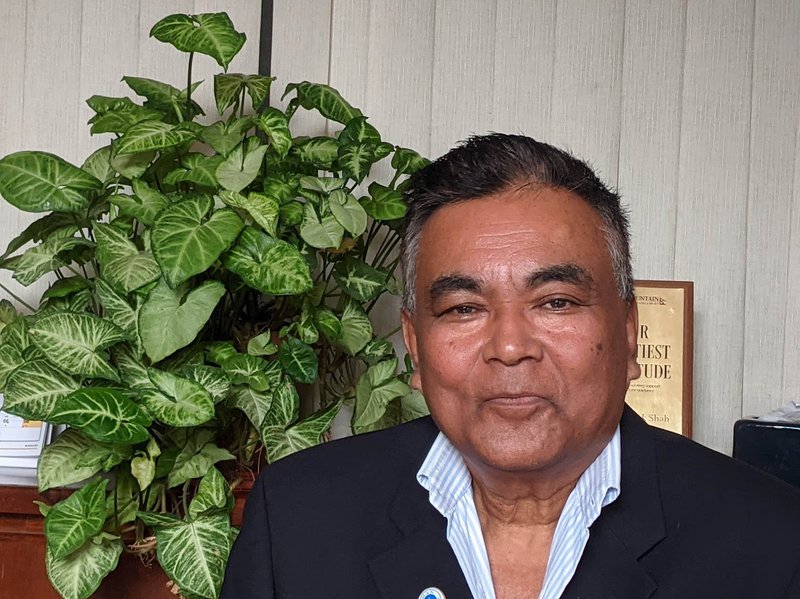
What is our daily flying capacity?
Even our own national flag airline can currently transport tourists with ease. However, the managerial side is lacking. With just a small intervention in the construction of the parallel taxi lane. the existing capacity of TIA could be significantly increased. Yet, we haven't taken any action.
How do you see the recent court decision on service charges?
The recent court ruling eliminating service taxes initially caused confusion, but it is gradually settling down. Larger hotels are taking measures to retain their employees, but small hotels face challenges without any compensation. As a result of the current low occupancy rates and financial strains, hotels are suffering in significant losses, as they still have to meet salary obligations and pay social security.
How do you see the increasing number of home stay in Kathmandu?
The presence of unauthorized home stay businesses in urban areas poses challenges as they operate without adhering to regulations and do not contribute revenue and taxes like upscale hotels. It is essential to enforce regulations and end the practice of home stays in cities to ensure fair competition and support the revenue generation of starred hotels.
How does the addition of new lodging options in Pokhara and Kathmandu impact the operations of starred hotels?
Currently, the issue arises from the fact that we pay taxes and follow all rules and regulations while there is nothing comparable for home stays. We must, however, play on the same field. Huge revenue is being lost by the government.
What role can Nepal Tourism Board play?
The NTB plays a crucial role in handling the promotion of tourism. However, it is unfortunate that they have been inactive in this regard. Local authorities should take action to encourage and support NTB.
- Pakistani Embassy In Kathmandu Hosted A Reception On 85th National Day
- Apr 16, 2025
- Earthquake Rocks Kathmandu Valley
- Apr 16, 2025
- Prof Dr Khadga KC assigned responsibility of TU Vice Chancellor
- Apr 16, 2025
- Weather Forecast: Partly Cloudy With Brief Rain In Kathmandu, Surkhet And Pokhara
- Apr 16, 2025
- Continuous Earthquake Tremors In Jajarkot
- Apr 15, 2025







